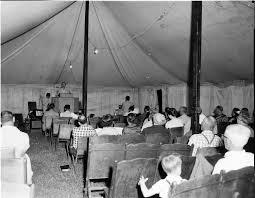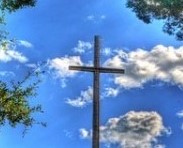My bride-to-be nearly drowned. She was young at the time, just hours old.
“Mr and Mrs. Barnes, the risks are high. To our knowledge no baby has made it through long-term. But the surgery is the only chance your little girl has.”
Earl and Mary had little time to think it over. A surgical team gathered and a T. E. Fistula repair was scheduled. The life of Alice Ann Barnes – her full body weight shy of five pounds – hung in the balance.
T.E. stood for Tracheosophageol. Sadly, the baby’s esophagus and trachea were defective at birth. Designed to transport her mother’s milk into her stomach, Ann’s esophagus mingled with her air-tube. Thus, any nutrition-rich fluids were sent to her lungs, not her stomach. In 1949 the field of medicine had its limits. Without corrective surgery, death by drowning or malnutrition would likely result.
Anesthetics were administered, their effects carefully watched. The surgeon’s knife found entrance into little Ann’s back. The procedure was underway.
Hours passed as anxious parents waited.
“Her vitals are steady.” Intensive care nurses – hours into post-op – kept a close watch on little Ann. Some likely prayed.
December, 1967. The former pediatrics patient – poised, lovely in her white gown – moved along the church sanctuary’s center aisle and to her waiting groom.
***
Our courtship, Ann’s and mine, had largely played out by long distance – spanning twelve hundred miles and two-and-a-half years. First by old-fashioned letters. Then with my Oklahoma-to-Montana phone calls.
The marriage wasn’t arranged by third-party players, but neither did we magically fall in love. We grew toward one another through the modest media of stationery paper and ballpoint ink, radial-dial phones with long-distance lines transporting two distinctly different accents – one from just south of Canada, the other a stone’s throw from Texas.
We had survived, each of us, our childhood crises of health. To one day embark, united, on a journey unlike any we could have dreamed.
An arranged marriage, one might say. By providence.
©2018 Jerry Lout



